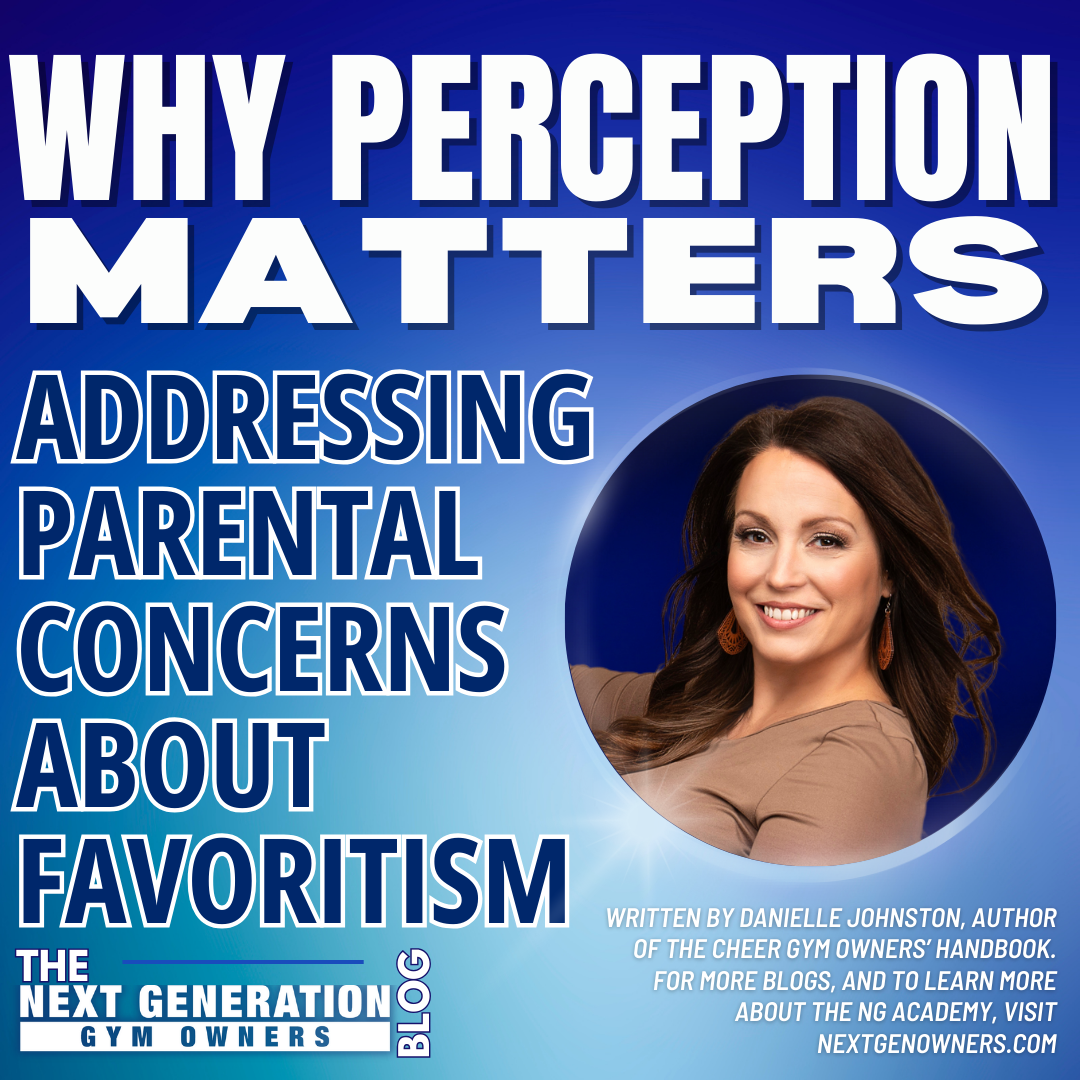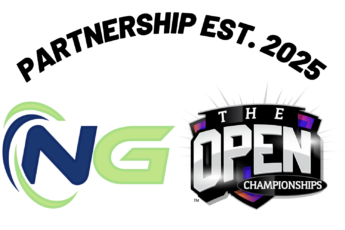If you’ve coached for any length of time, you likely can think back to athletes who impacted you as a coach. I can name them in my head easily: Sammie, Audrey, Alayna (all are either in college or have graduated college now). There are more, I’m sure, but those kids just stood out to me in a different way. I felt like I really knew those kids. It’s possible that others on the team—both athletes and parents—knew I had a special place in my heart for these kids. Of course, I never tried to show it. You want to treat all the kids on your team equally, but what happens when parents start perceiving favoritism for an athlete or two on your team?
When Parents Perceive Favoritism
As a coach, I’ve been accused of favoritism before. I remember, years ago, a parent said, “Well, so and so’s mom was telling me about practice on Wednesday. She said it was a tough one. She did mention you were fairly tough on all the kids except one—because she’s your favorite. Of course, I told her all coaches probably have favorites, and I’m sure that would never impact your decision to challenge these kids.”
My eyebrows raised. I actually didn’t have a favorite on the team. I mean, I had two daughters on the team, but if anything, I was always harder on them than the rest of the kids.
“Does she mean Addy and Meghan?” I asked.
“Oh no. All the moms think Madi is your favorite,” she replied.
I actually laughed. To be fair, I love Madi. She came to us from another gym 10 years ago. She was just a tiny at the time, and I remember when we competed against the other gym, I always thought she was so cute with her little hot pink glasses. That said, I was shocked that the moms thought she was my favorite. She had recently come back from an injury, and I was easing her back into practices, so she wasn’t doing full tumbling, and I was even modifying conditioning I thought would be too hard on her knee at the time.
To the moms, this translated to favoritism. I spent the next few weeks watching my words and instruction to the team carefully. In the end, I didn’t modify anything though because I hadn’t been treating Madi differently than anyone else on the team outside of her injury. However, it made me keenly aware of how moms perceive our actions sometimes.
Being Aware of Actions and Language
In 2021, I had an all star director at my gym who had just taken a job an hour away at another gym. The following week, I sat down for a meeting with a longtime parent in the gym who I thought was moving on to the gym down the street. I was very surprised when her application came through to continue with us another season. I had not intended on having her at our gym anymore, and quite frankly, it wasn’t a good fit for our culture. So, I met with her to let her know we’d be refunding her down payment for the season and voiding the application. Essentially, she’d be a free agent to go to any other gym she’d like.
If you’ve had to “release” a parent or not renew a contract, you may have experienced this: In her haste, she made sure to tell us every single thing that anyone at the gym had ever done that was bad. Among those things, she let me know that our former director had recently told one of the other youth athletes, “You know you’re my favorite.”
Now, I know the personality of this director well. She would never want to hurt children or be rude to any of them. She’s a good person. However, she made a bad choice in her language, and it affected this mom a lot.
I once had a team with a running joke where I’d tell a child she was my favorite in front of all the other kids. Then, I’d tell the next kid in front of the whole team, and they’d all burst into laughter because they knew I was just saying it to be silly.
That’s not how it had worked with the director in this case though. While I didn’t have to really deal with that situation much moving forward (with the director gone and this mom moving to another gym), it was a good training experience for my staff and a good chance for me to re-evaluate the language I used as well.
Why Moms Are Sensitive to Favoritism
Here’s what you need to know about moms:
They love their kids more than any other person in the world.
Yes, this includes their dogs (though the dog moms will joke) and everyone else in their lives. They want their child to be “seen.” They want them to be recognized for the things that make them special. Even when their child is difficult, they want a coach who will be able to get through to them. They want a coach who will embrace their quirks. They want a coach who will validate their child’s feelings and help make them a better human.
My 14-year-old is a little quirky. She’s literally me at that age. She’s got a short fuse sometimes, and she has very high expectations of herself but hasn’t quite realized the amount of work she’ll need to do to meet those expectations. I didn’t figure it out until I was in my mid-20s. I knew what I wanted, but I just couldn’t figure out how to work hard enough to get it. The best coaches for my daughter are the ones who understand that anger is a driver for her. When she is angry, she is most likely to recognize the hard work needed to achieve something. She typically doesn’t direct her anger correctly. She needs a bit of mental coaching to see where she could have taken more ownership of something and changed the outcome of her circumstances. That said, the best coaches are the ones who help her come up with a plan to meet her goals. The ones who motivate her and encourage her are the ones she will forever love. One of our coaches was especially good at that. To this day, my daughter asks every season if that coach is coming back.
They take their child’s failures personally.
When a child misses a tumbling pass, loses their spot in the routine, or fumbles when finding the foot in a stunt, their mom knows and feels it in her soul. Of course, I’m making a generalization here, but I’d say this is accurate for 90% of the moms in my gym. I even have moms who will apologize when their kids make mistakes on the mat. It shows me that they’re invested in their child’s journey. Though I don’t think you can really change this, you need to recognize it and approach these things carefully with both the parent and the child.
Addressing and Avoiding Favoritism
With this in mind, there are steps you can take to mitigate situations where parents perceive favoritism:
Be open with parents about mistakes.
Moms want their kids to be challenged, but they also want them to excel. They will assume their child’s insecurities, and because they’re adults, they tend to hang on to them far more than a child whose thoughts bounce from subject to subject. So, when a mom is insecure or feeling sorry for her child, she will perceive words and actions differently. There isn’t much you can do about this other than to know this in advance and be sensitive to it.
Be open with parents before it’s an issue. Let them know that mistakes are going to happen on the mat. It’s a learning process and what cheerleading is all about. Mistakes do not equal failures. In fact, mistakes that aren’t repeated are huge successes, and we should treat them as such.
Coaches need coaching if they’re not parents.
I’ll remain brief on this since I covered it in a previous blog. But your coaches who are not parents will need some perspective. They need parents they can trust (gym owners or other staff) to help them step in the shoes of their gym parents. “Why might this parent feel that way? Is there something I did or said that gave them that perception? Is there something I need to do differently in the future to help them understand how I truly feel?” These are all questions your coaches should be asking themselves if parents perceive favoritism.
Systems can eliminate some misconceptions.
If parents had known my “return to play” plan for an injured athlete, they may have recognized why I was making modifications for Madi. That policy is now in my athlete handbook. Even if parents don’t read it, I did my due diligence to be clear on why practice might look different for different athletes.
We compete this weekend, so I had a very focused practice last night for my minis. However, this was our first practice back after Thanksgiving break, so of course all the little turkeys wanted to do was play games and talk. So at the very beginning of practice, during warm ups, I asked them each what their favorite Thanksgiving food was. I called them each by name, and they answered. It was small, but it was my way of making sure every single athlete got my undivided attention during the practice.
Find ways to ensure every child’s name is getting called every practice; whether it’s a correction, a compliment or just a fun fact, give them their moment of spotlight. We all know there are plenty of athletes who will steal it if we don’t intentionally give the time to others.
So, if you’ve been told you have favorites or if you’re dealing with parents who think your coaches are playing favorites, take some steps to give everyone an equal playing field. Look at the broader perspective and educate your parents on what they can expect from you as a coach.








